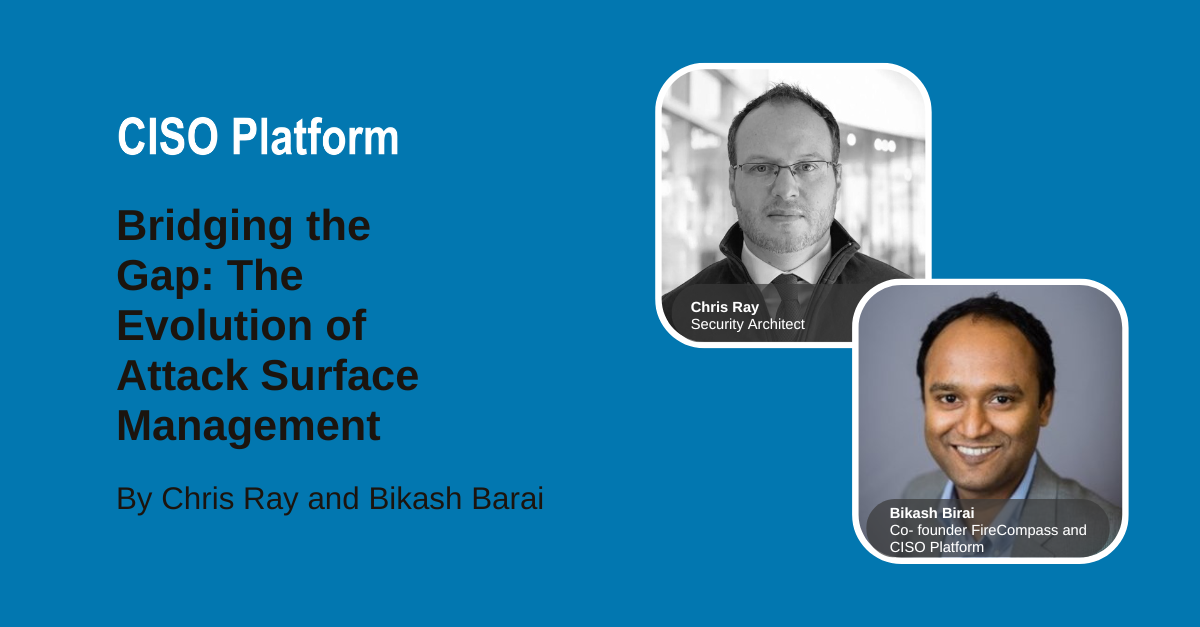In the realm where computer science intersects with magic and architecture, lies the fascinating journey of Nazia, a cybersecurity enthusiast whose early exposure to hacking sparked a lifelong passion for unraveling the intricacies of digital systems. From delving into patch reversals in her school days to witnessing the emergence of groundbreaking technologies like Shodan and ChatGPT, Nazia's trajectory illuminates the catalytic role of hacker culture in shaping the evolution of cybersecurity, particularly in the realm of Attack Surface Management (ASM). In this blog, we delve into the driving forces behind ASM's development, from the relentless pursuit of hacker communities to the pragmatic needs of small teams and startups navigating the cybersecurity landscape.
Here is the verbatim discusssion:
I used to love architecture sorry computer science and magic and architecture I wasn't really a hacker but there was this friend of mine in my school uh great hacker so I kind of got introduced to hacking uh through him so I remember this is more than two decades back um in our like school network which was um the the Lan um was there it's one of the um few kind of uh schools during those days which was getting networked uh internet early days so I remember um every Tuesday I forgot Tuesday or Thursday like Patch Tuesday Chris or yep Microsoft yeah so every Tuesday the moment the patches used to get released um we had this like hacking Enthusiast group we used to uh go and reverse those patches figure out what did they fix and then try to do the reverse engineering and find out the vulnerability that's you know showan census is another C Cen Sy uh similar but I think they're starting to put up a pay wall for some of their stuff uh and to a a lesser extent quickly becoming a greater extent chat GPT uh this is going to be leveraged much the same way showan was you know it's it's gonna go and while showan finds the devices I imagine chat GPT is going to then uh provide context around well when was this patch released and what specific versions and maybe what was fixed if it's been on the the internet and chat GPT algorithms have been fed the data then it will provide those answers to anyone who asked that the the question so you know all these uh attacker focused enablers of Technology have been around and existing for a while uh and I I do see that you know now that you've made the connection for me as a catalyst for the development of ASM because the blue team needs something to to then catch them up to where they were at or where the where the attackers are at uh so yeah I I I do see that as a as a major driver um the other things that I know for a fact that are driving ASM because I've I've experienced them are uh small teams like I said or startups or small teams in large organisation.
Speakers:
Chris Ray, a seasoned professional in the cybersecurity field, brings a wealth of experience from small teams to large financial institutions, as well as industries such as healthcare, financials, and tech. He has acquired an extensive amount of experience advising and consulting with security vendors, helping them find product-market fit as well as deliver cyber security services.
Bikash Barai is credited for several innovations in the domain of Network Security and Anti-Spam Technologies and has multiple patents in USPTO. Fortune recognized Bikash among India’s Top 40 Business Leaders under the age of 40 (Fortune 40-under-40).Bikash is also an active speaker and has spoken at various forums like TiE, RSA Conference USA, TEDx etc.
Earlier he founded iViZ an IDG Ventures-backed company that was later acquired by Cigital and now Synopsys. iViZ was the first company in the world to take Ethical Hacking (or Penetration Testing) to
the cloud.


Comments